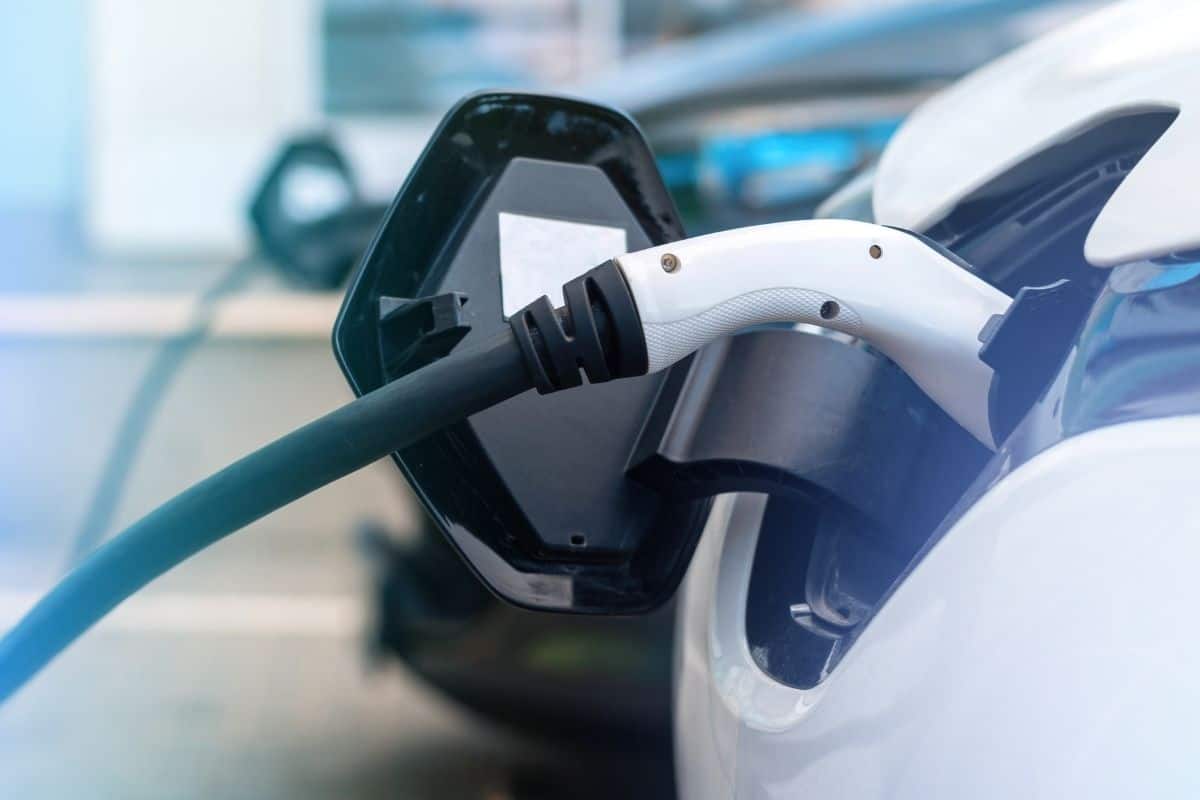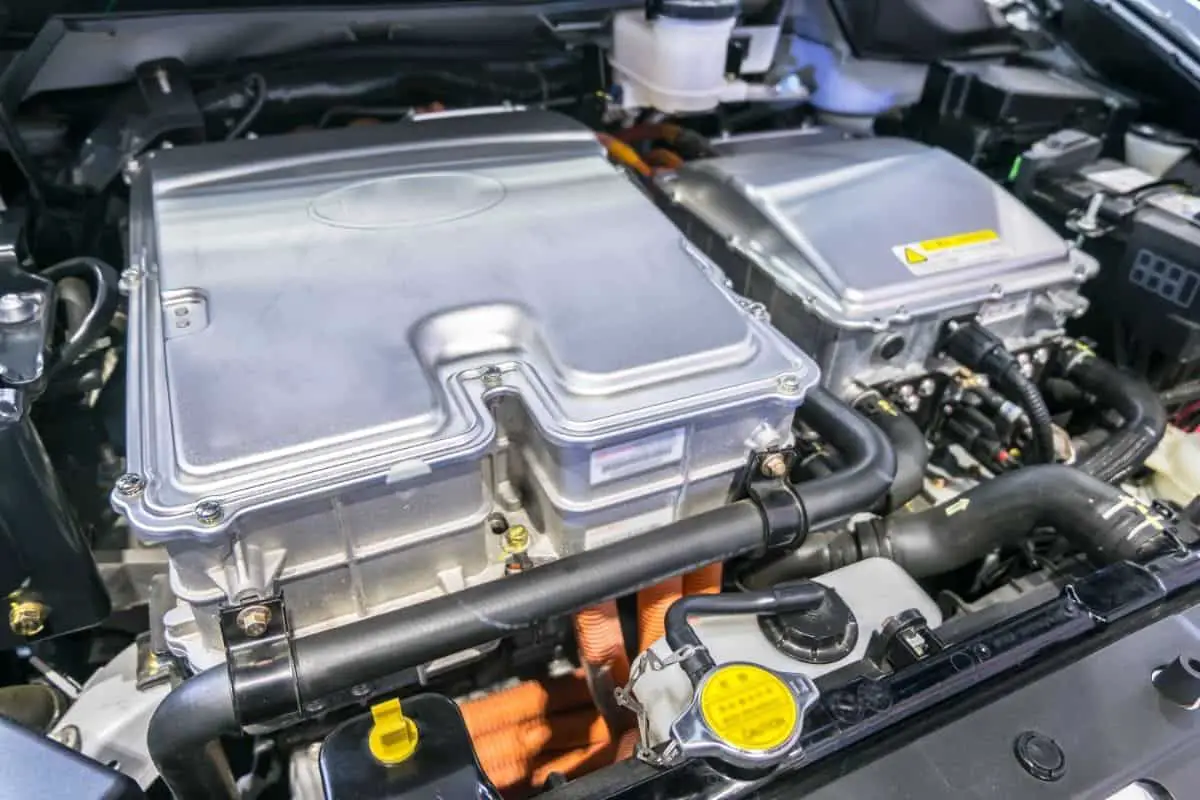Hybrid cars are cars that are powered by electricity through a battery, as well as fuel.
The benefit of hybrid cars is that they have lower emissions, whilst still having the ability to use electricity or fuel at times.
If you need to use fuel for a more treacherous road, the engine will kick in.
Alternatively, if you need to use electricity for driving through town, the battery will power up. But, how long do hybrid batteries last?

How Long Do Hybrid Batteries Last?
It is estimated that the battery in a hybrid car will last anywhere from 80,000 to 100,000 miles of driving.
But, if you put the right care and maintenance into it, it could last more than 150,000 miles, which would be great.
Now, although this is the case for hybrids with batteries, what about plug-in hybrids?
Well, with plug-in hybrids, the batteries are supposed to last for the entire lifetime of the car.
This is because they need charging, just like the batteries in a regular and 100% electric car.
Some car companies and manufacturers will offer a warranty on their hybrid batteries, simply for the reason that they have a lot of confidence in their batteries.
Usually, this warranty will be at least ten years long and will cover 100,000 miles.
For these reasons, hybrids and their batteries last a lot longer than a fuel car.
Although they may have more components, they have a long warranty and simple features, meaning they are designed to last longer.
If you’re genuinely considering a hybrid car, don’t miss my in-depth analysis that will help you determine if a hybrid is worth your while.
What Is A Hybrid Car?
Briefly, a hybrid car is a car that is powered by a battery, as well as a gas engine.
The cars use two ways of propulsion, and this is quite beneficial for you, and the environment.
They are powered by their internal combustion engine, as well as electric motors powered by batteries.
The energy is stored in the batteries until the electricity is necessary to use. You can charge most hybrid cars because they are plug-in cars.
What Are The Positives Of Hybrid Cars?
The positive of hybrid cars is that they run a lot cleaner than regular cars, with excellent gas mileage.
The reason for the good gas mileage is that the electric battery will kick in to prevent too much gas from being used.
This is great for your mileage, as well as the environment.
They will cut fuel costs and consumption for you, as well as conserve energy whilst you are driving.
They are also cheaper to run, due to the cheaper cost of charging your battery, meaning you will not have to use as much gas.
Additionally, the cars have smaller engines, usually equipped with an automatic start and stop function, perfect for when you are waiting in traffic.
The fact that the engines are smaller also means that they will not consume and use as much fuel.
They often have a regenerative braking system, too. This system means that the kinetic energy of the car is converted and stored until it is needed.
For example, when braking, the momentum of the hybrid car is used instead of using the brakes and heating the brake discs up.
It takes the energy and takes it to the battery of the car, helping charge up the battery.
What Are The Downsides Of Hybrid Cars?
Hybrid cars are a lot better than regular cars, but are there any downsides to them? The answer is yes because there are downsides to everything.
Some of the downsides to hybrid cars are the fact that repairing the system would cost more money.
This is because the systems are newer and often more complicated to make and install.
Hybrid cars are designed to last longer, so naturally, if they do need repairing, it will cost more money.
Additionally, hybrid and electric cars are pretty expensive compared to regular cars.
This is because they are more expensive to make, and their technology is continuously evolving because it is quite a new concept.
New hardware means you will be expected to pay more money.
Also, the whole idea of a hybrid car is to mix electricity and fuel.
This is great, and it helps the environment, but there is a downside in that it is still contributing to emissions.
How Do Hybrid Batteries Work?
Hybrid batteries work by being charged through regenerative braking, as well as through the internal combustion engine.
Through this, they are continuously being charged, and you do not often have to plug them in to charge them.
Saying this, you can get some plug-in hybrid cars, but they are not as popular.
The battery will store any power and kinetic energy that you do not use, and convert it back into energy that can be used as electricity.
This electricity will power the car when necessary, and work with the engine that is powered by fuel.

Can Hybrid Cars Run Without A Hybrid Battery?
No, the cars cannot run without a hybrid battery. So, if you need to buy a new hybrid battery, your car will be out of action until the new one has been installed.
This is because the hybrid battery is used just as much as the fuel is, and should always be powering up.
How Do You Know When The Hybrid Battery Needs Replacing?
When your hybrid battery needs replacing, you will notice that your car is completing fewer miles to the gallon.
Additionally, if your ICE (internal combustion engine) is running strangely and making noises, this is another sign it may need replacing.
If there are general charging issues, jolting, and strange noises, this would tell you that your battery may need replacing.
The average price to replace a hybrid car battery is at least $2,000.
Although this is pricey, they are designed to last for around ten years, and the cars generally have fewer issues.
Final Thoughts
Hybrid cars are a thing of the current day, as well as the future.
They are environmentally friendlier than regular cars, and they run from batteries as well as the engine.
Their batteries tend to last around ten years, which is a pretty good amount of time, considering you can also get them replaced. Thank you for reading.
- Tesla Charger Installation Cost (Home Setups) - March 1, 2024
- Tesla Phone Key Disconnected (Troubleshooting Guide and Quick Fixes) - March 1, 2024
- Tesla FSD 12 (Explained) - March 1, 2024